A round-up of activities of the UN system in Somalia in January 2025
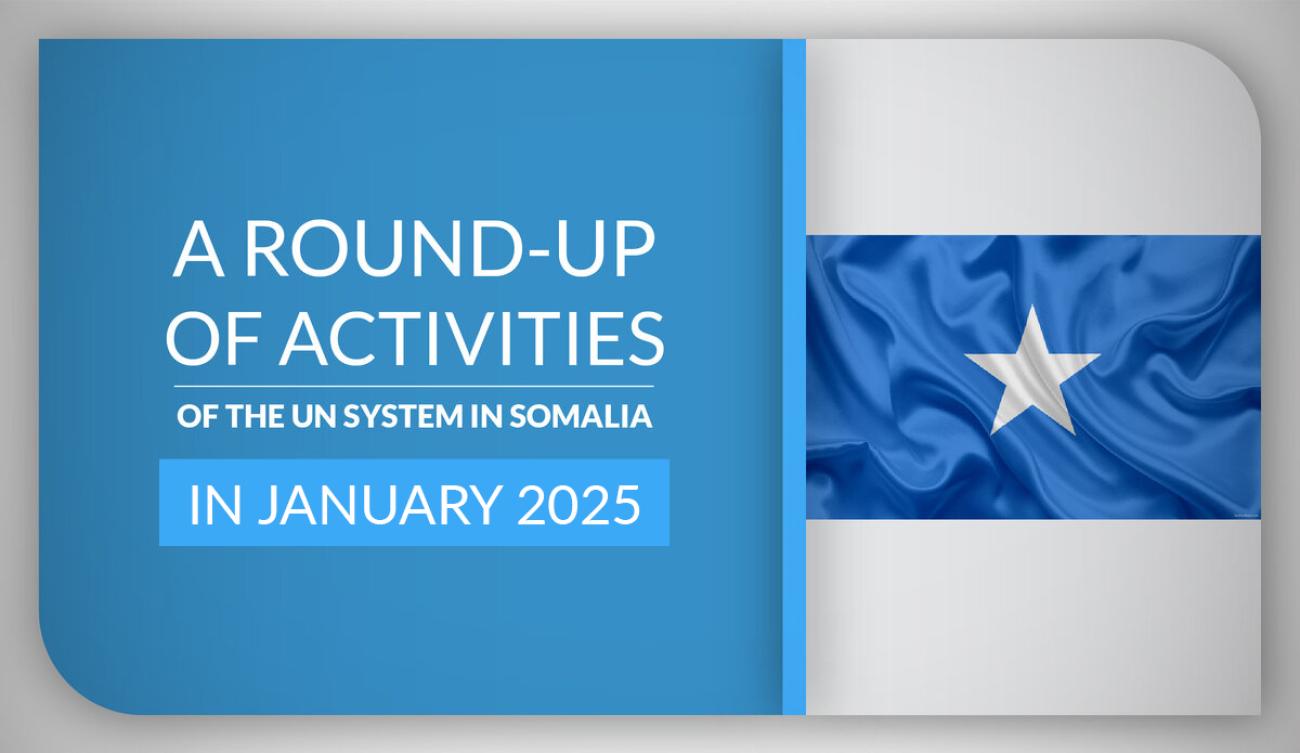
A quick snapshot of the United Nations efforts in support of Somalia's priorities
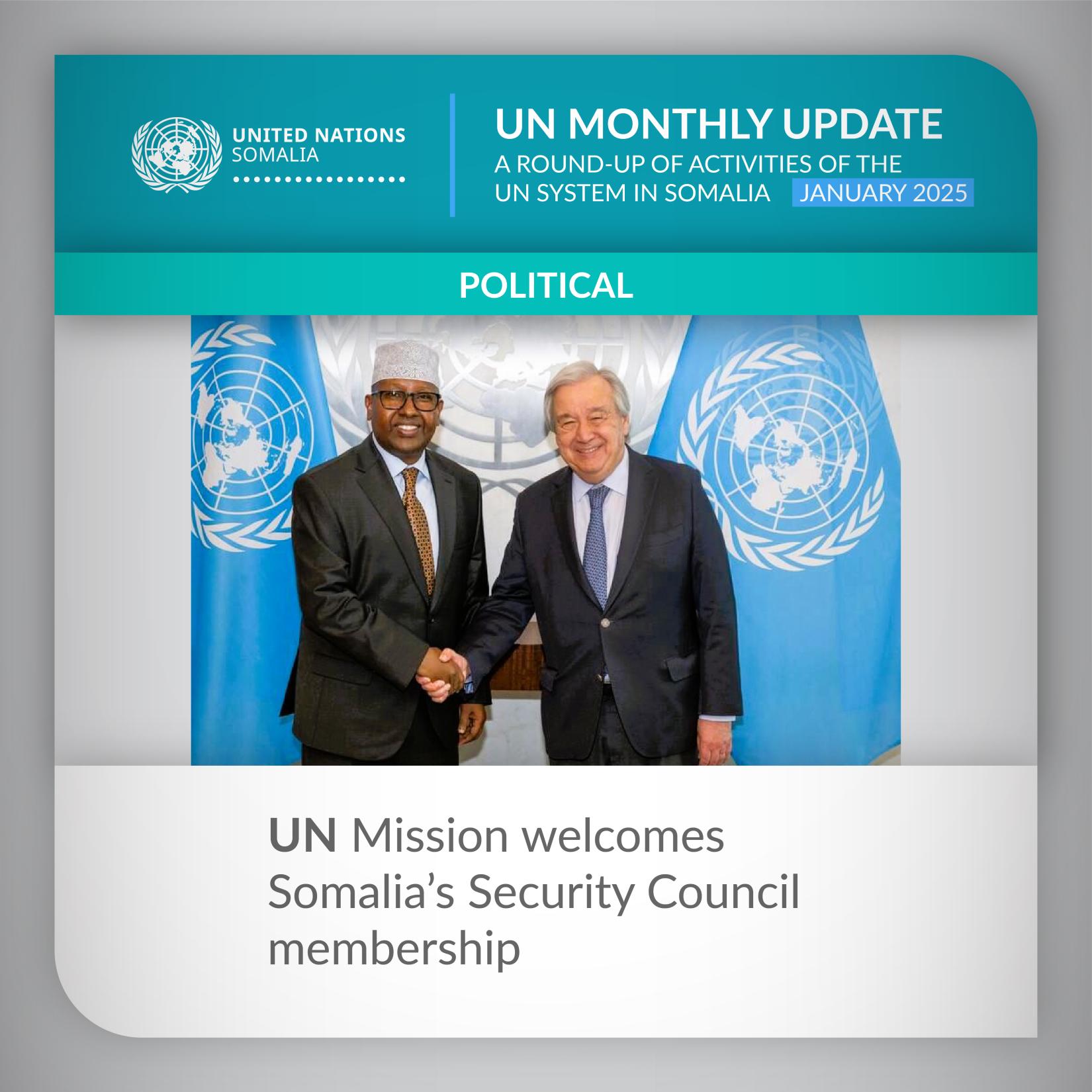
Political| UN Mission welcomes Somalia’s Security Council membership
January saw Somalia take up its non-permanent seat as a member of the UN Security Council for the 2025-26 period, with UNTMIS welcoming the move as another major step in the Horn of African country’s return to the international stage. Somalia last served on the Council in the early 1970s.
As part of its ongoing support to the development of inclusive politics in Somalia, political affairs experts from the UN Mission supported the Somali Family Support Network to hold a Youth Civic Engagement Forum in Mogadishu in early January with 200 young Somalis receiving training in leadership, digital activism and political systems. UNTMIS also supported human rights training of six young Somali artists centred on the connections between human rights and art, with the latter being a powerful tool to communicate messages, highlight social justice issues and inspire people to defend their rights.
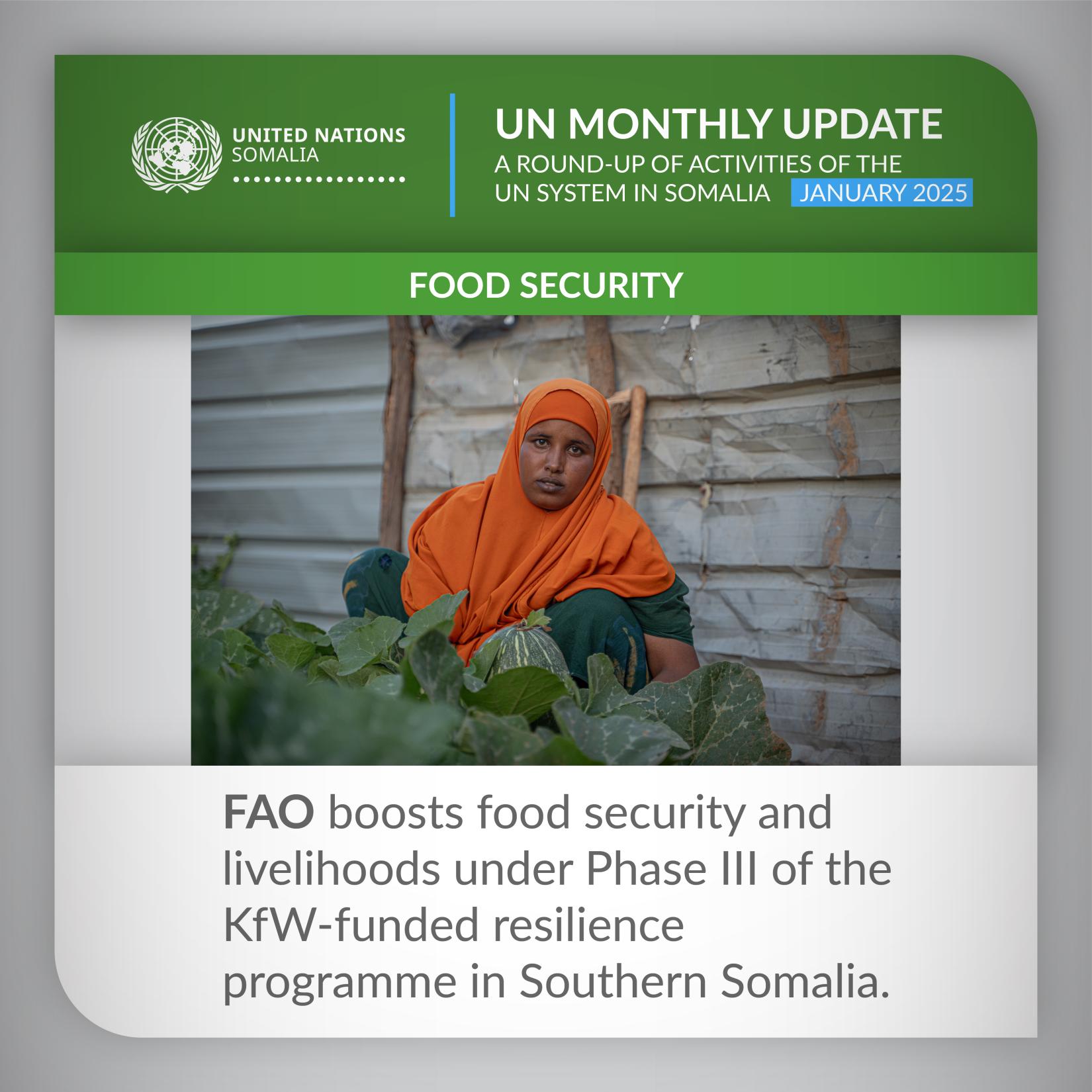
Food security |FAO boosts food security and livelihoods under Phase III of the KfW-funded resilience programme in Southern Somalia.
With support from the Federal Ministry for Economic Cooperation and Development (BMZ) through the KfW Development Bank, FAO is driving resilience efforts in Southern Somalia. Building on Phases I and II, which addressed nutrition, health, WASH, education, and livelihoods, Phase III focuses on integrating sustainable food security and livelihoods solutions with earlier interventions. FAO’s contributions include technical support for irrigation, rain-fed agriculture, horticulture, poultry farming, beekeeping, fodder production, and livestock management. These initiatives empower households to grow and access nutritious food, generate income through market linkages, and invest in essential services like education and healthcare. By fostering sustainable livelihoods, the programme strengthens the foundations of community resilience.
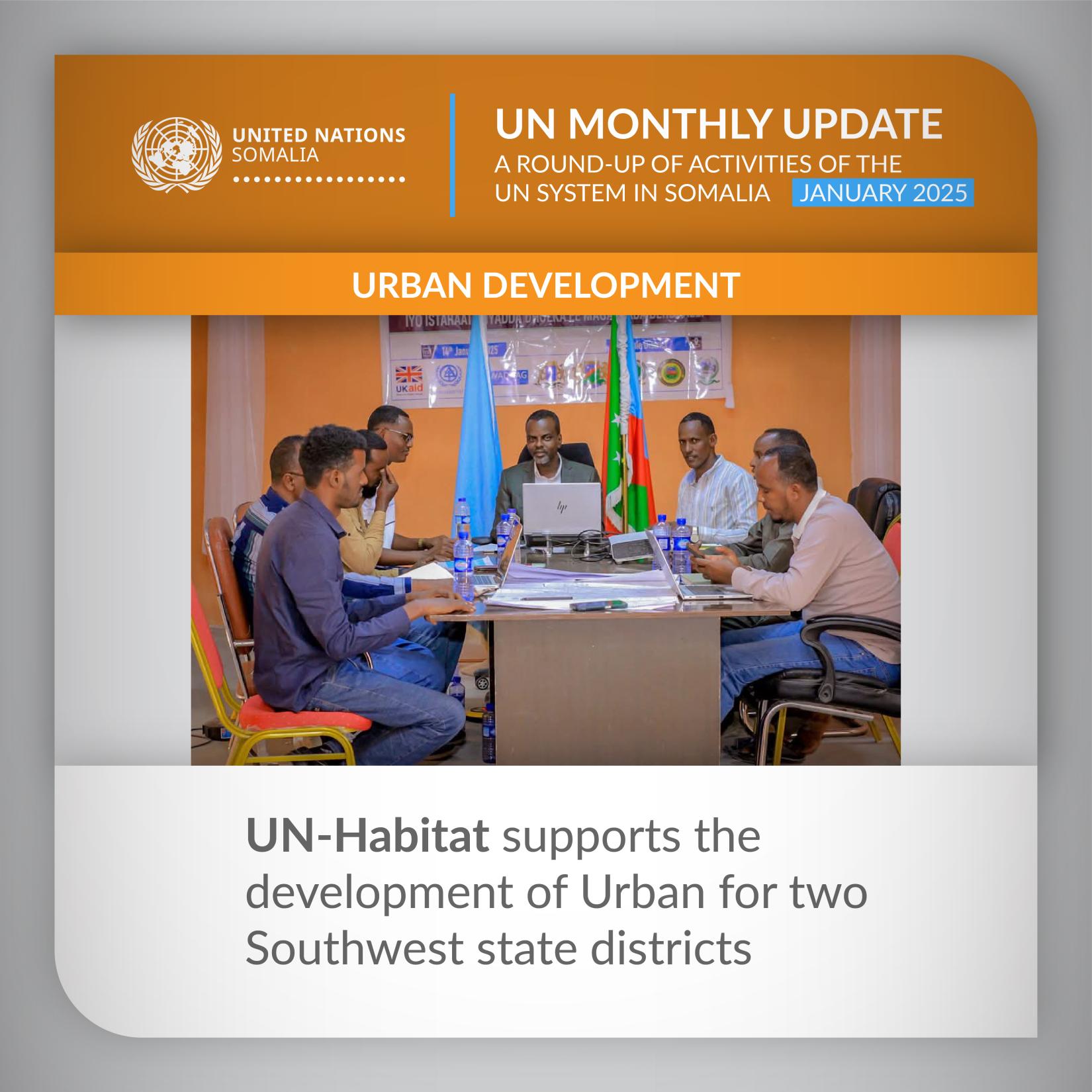
Urban development | UN-Habitat supports the development of Urban for two Southwest state districts
UN-Habitat and IOM supported local leadership in Berdaale and Hudur districts of Somalia’s South West State to develop urban plans aimed at addressing the challenges of displacement caused by floods, droughts, and conflict. In January, validation workshops were held where the mayors of the two districts as well as other stakeholders reviewed and validated the comprehensive spatial analysis of the city and provided strategic feedback. These plans will focus on promoting inclusive and sustainable urban development to prevent the growth of informal settlements, reduce land disputes, and promote social inclusion by integrating the displaced individuals into intermediary towns. Additionally, the plans will offer local and state governments a clear roadmap to sustainable development and durable solutions, enhancing resilience and territorial development in the region.
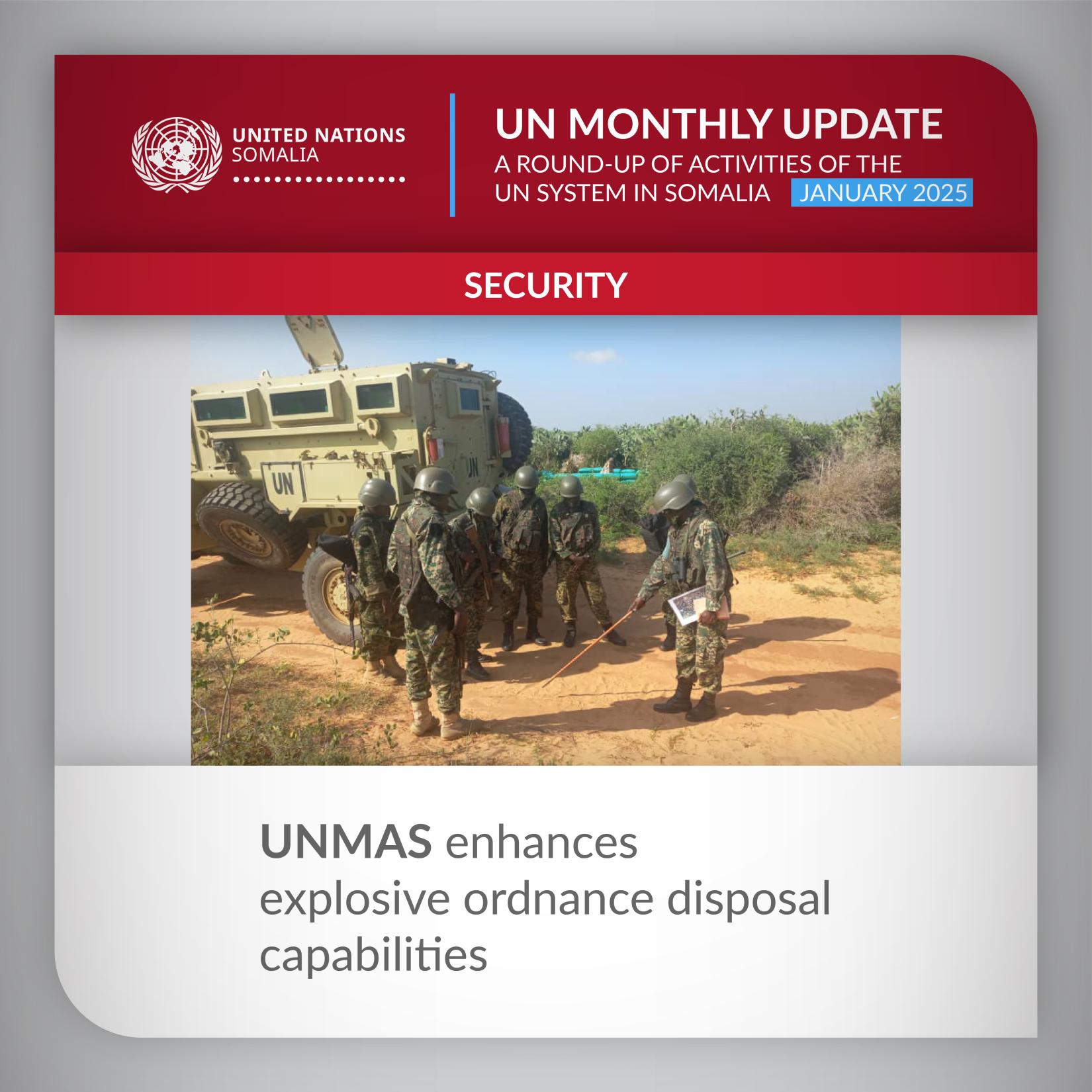
Security | UNMAS enhances explosive ordnance disposal capabilities.
As part of efforts to enhance explosive ordinance disposal abilities, in January, UNMAS has been instrumental in training and equipping Ugandan People’s Defense Forces (UPDF) route search and explosive ordnance disposal (EOD) teams. This training enables the UPDF to conduct thorough searches and safely dispose of explosive ordnance (EO), significantly reducing the threat posed by improvised explosive devices (IEDs). During a recent logistics convoy mission in Lower Shabelle, conducted in January to deliver essential supplies to various AUSSOM forward operating bases, the convoy encountered multiple IEDs and indirect fire, demonstrating the dangerous environment in which these operations are carried out. The UPDF EOD teams were able to find and clear 16 IEDs. This achievement potentially prevented 64 IED-related casualties, highlighting the critical role of training and mentoring support provided by UNMAS to respond to EO threats and save lives.
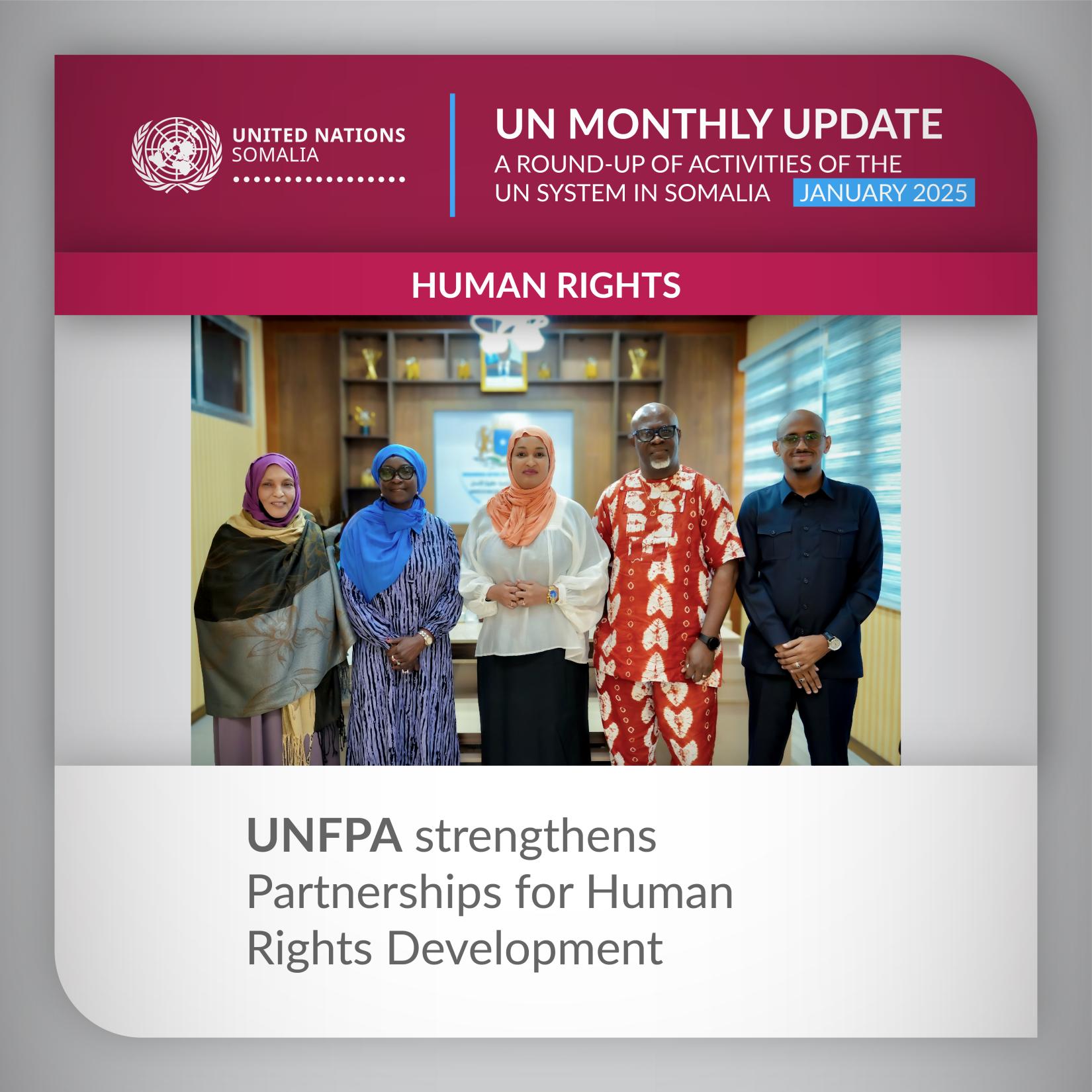
Human Rights| UNFPA Strengthens Partnerships for Human Rights Development
The Minister of Family & Human Rights Development, H.E. Khadija Al-Makhzoumi, convened a productive meeting with a delegation from the United Nations Population Fund (UNFPA) on 14 January 2025, spearheaded by Representative a.i. Mary Otieno. The discussions revolved around fortifying the ongoing collaboration between the Ministry and UNFPA to propel forward vital initiatives focused on human rights and family development. Minister Al-Makhzoumi lauded the favorable outcomes of the Ministry’s partnership with UNFPA and stressed the importance of redoubling efforts to achieve shared objectives. This meeting highlighted a mutual dedication to advancing key goals in the domains of family and human rights. Through their strengthened alliance, the Ministry and UNFPA aim to make a significant, positive impact in these crucial areas.
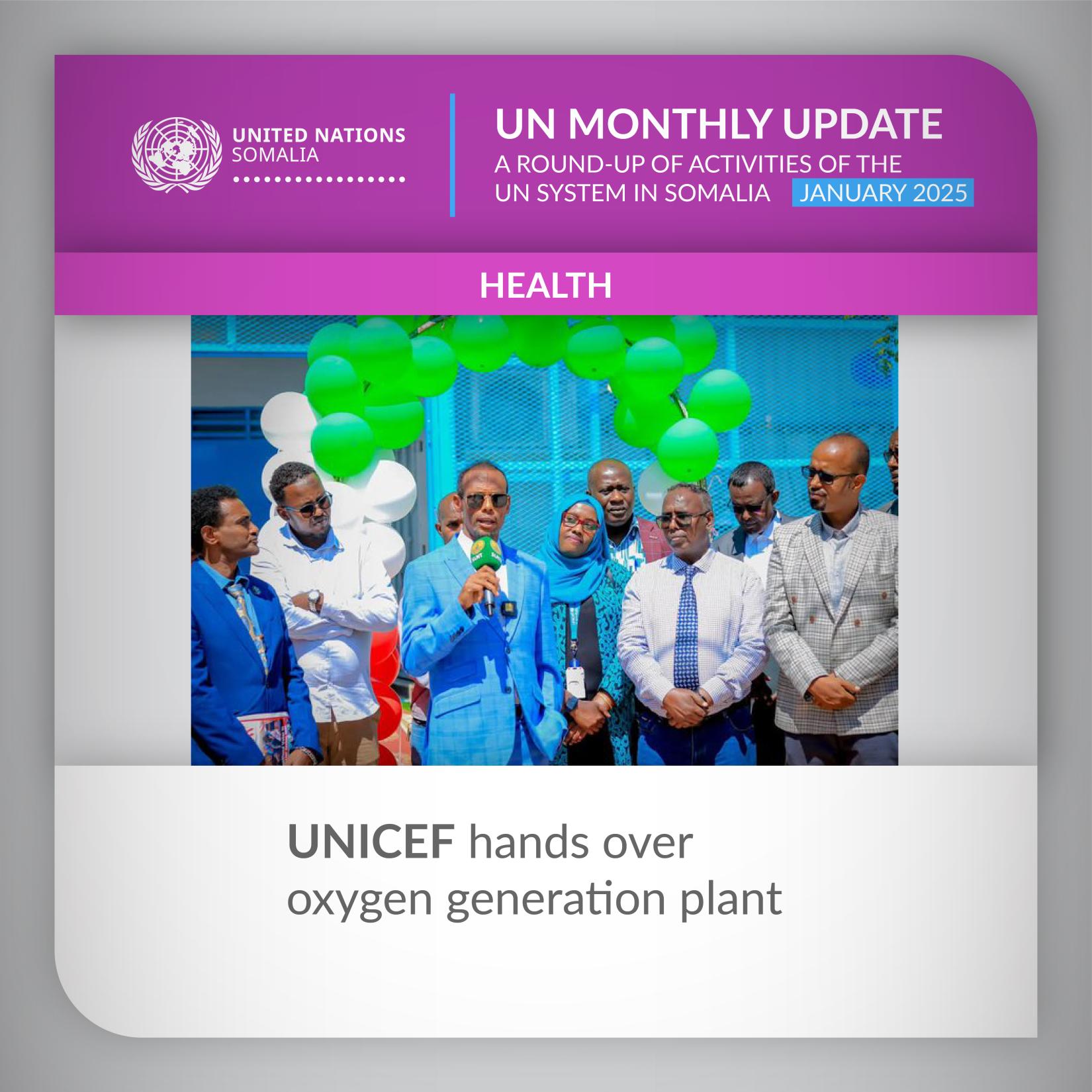
Health |UNICEF hands over oxygen generation plant
Access to oxygen is a life-saving treatment, especially for children with pneumonia who can now access child-specific oxygen accessories. UNICEF has installed a new oxygen generation plant at the Hargeisa Group Hospital and handed it over to the Minister of Health Development, Dr. Husein Bashir. The oxygen will also support critical care units within the referral facility, notably by ensuring the neonatal and surgical departments operate effectively. UNICEF is also supporting training of health workers on oxygen treatment to minimize harm and maximize patient recovery. This project was made possible by funding from the Global Fund and the World Bank.
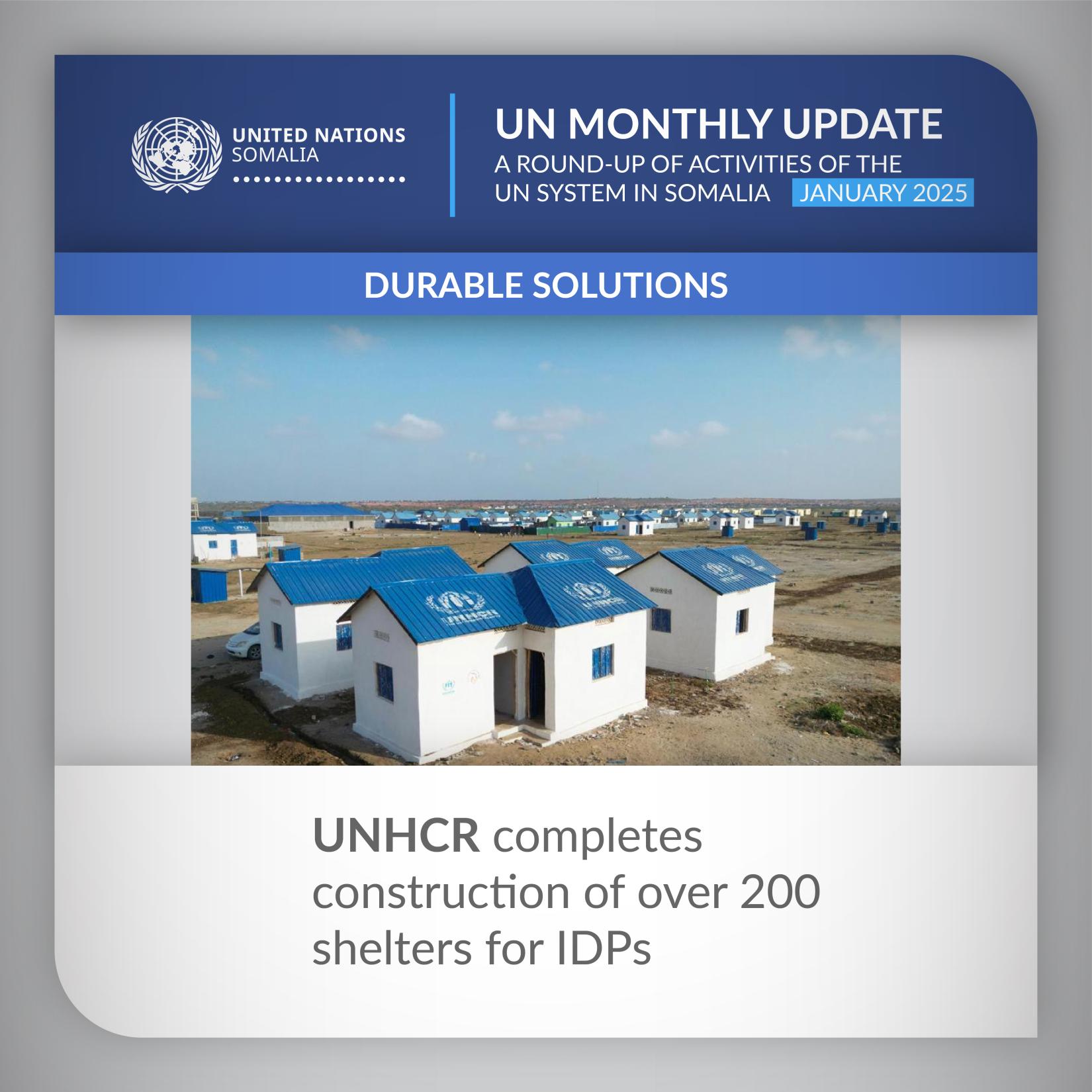
Shelter | UNHCR hosts sports activities and promotes inclusion in Hargeisa UNHCR complete construction of over 200 shelters for IDPs
UNHCR's interventions in Somalia have focused on providing durable solutions for displaced persons, with a strong focus on shelter construction. In January, UNHCR successfully completed over 200 shelters in Kismayo, offering families safe and secure homes to improve their living conditions. These shelters provide protection from harsh weather while restoring dignity and stability for displaced communities in the area. In addition to offering physical safety, the shelters contribute to fostering a sense of belonging and hope for families who have endured significant hardships. By ensuring access to safe housing, UNHCR is helping to lay the foundation for long-term recovery and resilience in Kismayo.
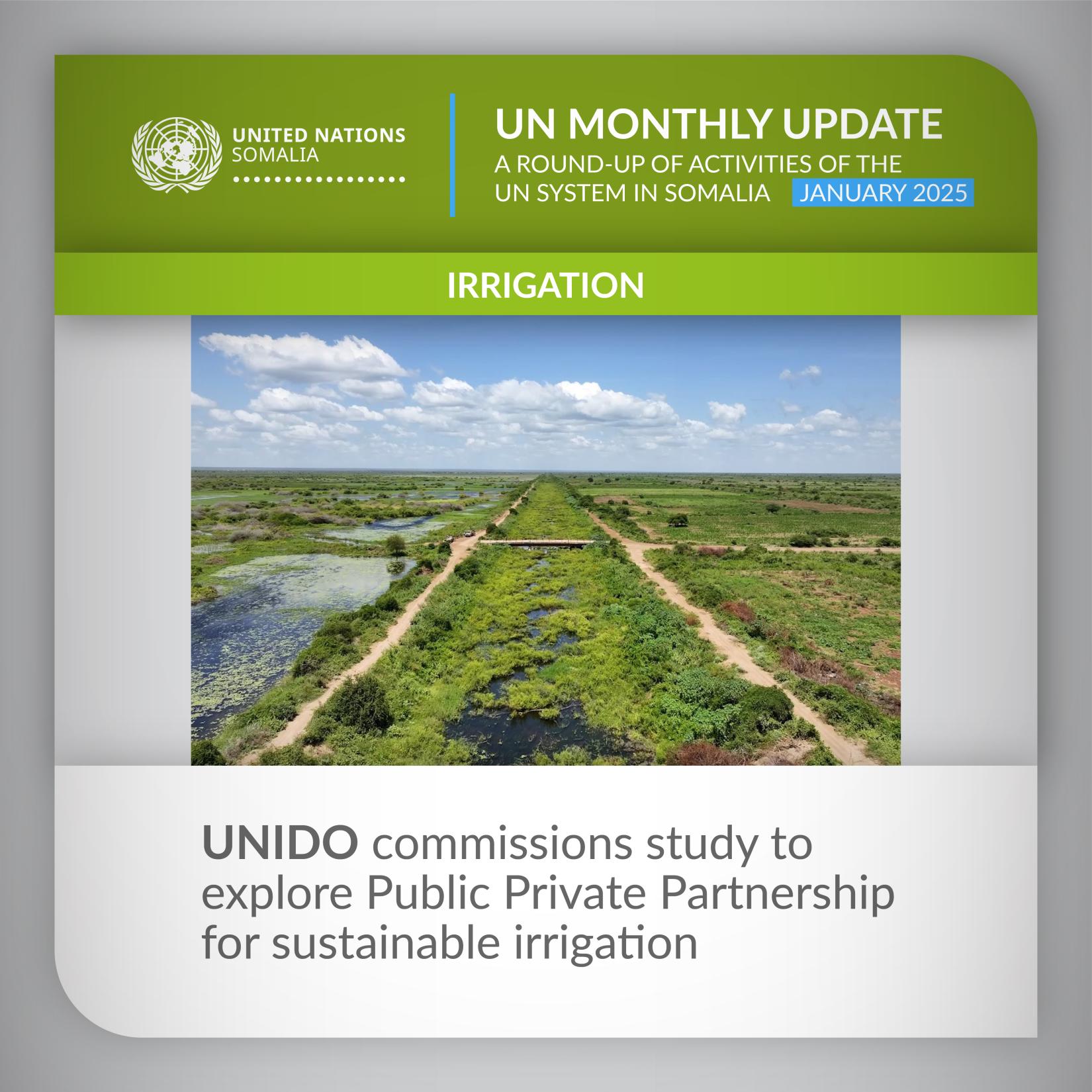
Irrigation | UNIDO commissions study to explore Public Private Public partnership for sustainable irrigation
A pre-feasibility study that explores governance options and efficient systems for managing irrigation schemes in Jowhar, Hirshabelle State has been commissioned by UNIDO Somalia. The study aims to understand the challenges faced by the public sector in sustaining irrigation infrastructure following rehabilitation efforts. The study undertaken, within the framework of the Jowhar Off-Stream Programme (JOSP) led by FAO, focuses on key areas such as stakeholder analysis, financial viability assessments, and market scoping to evaluate private sector interest. By leveraging Somalia’s national PPP framework, it incorporates partner-driven analyses and engages stakeholders through workshops to ensure sustainable, context-sensitive outcomes that align with local needs.











